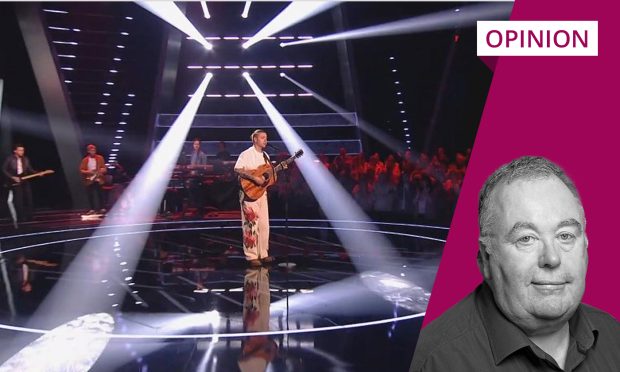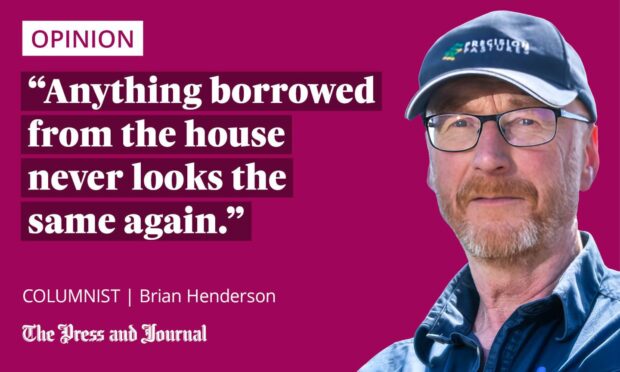It’s a much undiscussed problem with social media.
We’re alert to people who use Facebook or Twitter to attack others for their – entirely legitimate – political or personal beliefs. And we know there are predators out there, too, using the internet to get closer to the vulnerable.
Rightly, we take steps to block these people and to ensure our kids know about the dangers of the wrong ‘uns who lurk online.
But there is another online presence that, although it is neither threatening nor actually dangerous, we should take a stand against.
I refer to the “this is rubbish” guys; the bores who can’t wait to tell us what they don’t like and why you’re wrong to like the things you do.
Last weekend’s Eurovision Song Contest was like a flame for these misery moths, who delighted in explaining why anyone watching was a fool.
The majority of those negatively opining were of the hit-and-run, “this is crap” variety, but others had plans for how things might be improved, the worst of which was the proposal that all songs should be performed acoustically in order that their value might be truly judged.
Urgh, what a miserable idea. What makes Eurovision songs great is how big, bold and – frequently – downright weird they are. The very last thing that would make this joyous and utterly camp celebration better would be if the performers all sat, cross-legged, Kumbaya-ing their way through dirge after dirge.
But it is not just Eurovision that attracts the “this is rubbish” guys. You can guarantee anything that gives people pleasure will be angrily dismissed by them. And they especially enjoy telling us how terrible something is if it was made by a woman.
The internet may light up with fans on the day of a new Taylor Swift or Lana Del Rey album but, outnumbered though they are, there are plenty of men who’ll find the time to get online to say that all these excited fans are wrong and that, in fact, the work they are celebrating is of no worth. Don’t these stupid fans know there’s “real” music out there?
Life’s too short to think about things you don’t like
Growing up in the 1980s as an avid consumer of the weekly music papers, I had a very early introduction to the energetically negative review. In those days, many writers for the NME, Melody Maker, and Sounds took great pride in how viciously and comprehensively they took down this band or that singer.
And, I must admit, as a totally tribal teenager – “You don’t like The Smiths? Then you are my enemy and I hope you have a miserable life” – I was quite the enthusiast for that kind of thing.
These days? These days, life is just too short to think about the things I don’t like.
Whatever I might think about it, there are people for whom it’s part of a perfect Saturday evening
Sometimes, I struggle with this new creed of positivity. I’m often tempted, for example, to express an opinion about the BBC comedy show Mrs Brown’s Boys. But, you know, whatever I might think about it, there are people for whom it’s part of a perfect Saturday evening, and what kind of boor wants to start sneering about that?
A subset of the “this is rubbish” group is the “who?” guys. These are the absolutely exhausting dullards who pop up online to express, proudly, their ignorance about this artist or that performer.
You’ll have seen these bores in action. People will be enthusiastically exchanging opinions about a new album or movie and a “who?” guy will turn up to let everyone know he doesn’t know who they’re talking about. Under my benevolent rules, a three-strikes rule will mean repeated examples of this tiresome behaviour will lead to a permanent ban from using the internet.
If it’s negative, it has to be entertaining
Don’t get me wrong, I’ve not aged into an “isn’t everything wonderful?” drip, devoid of critical faculties. I can still enjoy a brutal review of a major film, or a takedown of an error-strewn book. But if you’re going to bring the negativity to me, it had better be truly entertaining.
If, on the other hand, your intervention goes no further than being dismissive, I just don’t have the energy to care. Others’ negativity about the stuff I love is never going to change my mind.
On the other hand, I’m constantly finding new things to enjoy – whether music, literature or films – thanks to the enthusiasm of others.
So, my message to the “this is rubbish” guys is simple: nobody cares what you hate. Tell us about something you love.
Euan McColm is a regular columnist for various Scottish newspapers












Conversation